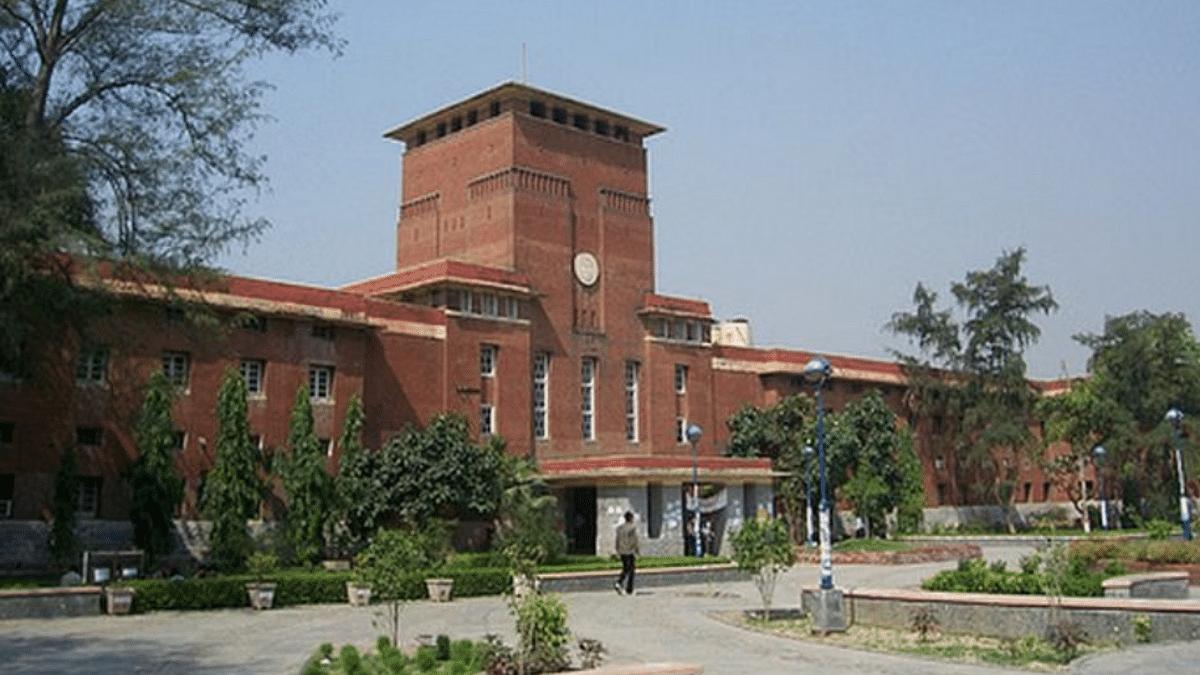New Delhi: In a meeting held on Saturday, the Delhi University’s Academic Council has approved detailed guidelines to implement the fourth year of undergraduate programmes beginning from the academic session 2025-26. However, there are concerns over faculty workload and infrastructure.
This marks the operationalisation of the University Grants Commission’s Undergraduate Curriculum Framework 2022 (UGCF-2022), aligning with the National Education Policies (NEP 2020), offering students a choice among pursuing a dissertation, academic project or entrepreneurship. This will be the first batch for the four year UG research programme.
Under the guidelines, the students will be provided with mechanisms for being supervised, assessments, funding and a standardised process across different colleges. Students will have the autonomy to tailor their academic interests in the fourth year.
Show Full Article
For students inclined towards research and higher studies, the dissertation route has been planned. This will require them to undertake original work under faculty supervision.
Under the academic project route, the students will be allowed to collaborate or work individually on applied or theoretical themes. Meanwhile, under the entrepreneurship route, the students will be able to focus on their innovative ideas and startup incubation. This will be supported by industry mentors and coursework on business fundamentals.
Each route as per the guidelines will have its own deliverables, supervision protocols, and assessment parameters, all falling under a shared structural umbrella emphasising regular monitoring, ethical practices, and academic rigour.
Unlike conventional norms, the faculty members will be allowed to guide the students in their research and entrepreneurship projects regardless of whether or not they hold a PhD.
Moreover, each student undertaking a dissertation will be assigned an Advisory Committee for Research (ACR), which will evaluate progress on a monthly basis. The students will be required to submit a Monthly Progress Report to the ACR. Also, each faculty member will be allowed to guide up to 10 students, however, this number can be increased by the College Research Committee (CRC) overseen by the Principal, with due justification.
The guidelines give the students the freedom to conduct group work in the Academic Project route, limited to a maximum of three students per group. “In case of a group project, individual contributions must be explicitly defined and manifested in the output for the purpose of assessment,” the guidelines say.
Meanwhile, students pursuing the entrepreneurship track are required to complete two Generic Elective (GE) courses, Essentials for Entrepreneurship I and II, if not already taken.
Some, however, feel DU lacks the infrastructure for such plans.
Monami Sinha, a member of the Academic Council, told ThePrint that while the new guidelines mandate faculty supervision for student projects, they remain silent on whether teachers will be given any academic credit or workload adjustment for it. “Teachers are already juggling three to four courses and struggling to manage timetables. Now they want us to supervise dissertations too, we’re not robots,” she said.
Sinha added that the additional burden would inevitably affect teaching quality. She suggested that supervision should be shared between at least two faculty members, one junior and one senior with over ten years of experience, to distribute the responsibility. Raising concerns about the proposed funding for students, she asked, “Who gets to decide which student is deserving of the funds and on what basis?”
Abha Dev Habib, a professor at Delhi University said, “The university is focused on output, patents, publications, book-quality dissertations, without creating the infrastructure to support research.” She criticised the administration’s top-down approach, pointing out that most colleges lack even basic facilities like individual teacher cabins or student research spaces. “This is not just unrealistic, it’s deeply unfair and unacademic,” she added, warning that such pressures could lead to “a system forced to fake it”—as witnessed during the API system when faculty were pushed to publish under questionable metrics.
Also read: Plagiarism, fake information riddle DU School of Open Learning study materials. ‘Cruel joke’
Research funding and preventing plagiarism
As per the guidelines, all kinds of student projects will be eligible for financial support through multiple channels, including internal college funds such as the Student Welfare Fund and Facilities and Services Charges, and external sources like industry collaborations, Corporate Social Responsibility (CSR) contributions, and alumni donations.
“Funding should be awarded based on merit of the proposals of the students. Students must submit well-justified proposals. A proforma may be developed for this purpose by the colleges. A proper utilisation certificate (UC) should be submitted in accordance with the college norms, if funding is provisioned,” it says.
Moreover, to institutionalise academic contributions, each college will be required to maintain a research repository, physical or digital, containing the project title, abstract, keywords, plagiarism report, and supervisor feedback. A university-wide portal is also being considered for archiving and showcasing high-quality undergraduate research.
To ensure faculty are equipped to guide research, colleges must organise regular Faculty Development Programmes (FDPs) focusing on research methodology, data analysis, and ethical supervision. Students, meanwhile, will undergo orientation sessions each semester that will cover plagiarism policies, referencing tools, and academic honesty.
The guidelines also provide a dispute resolution clause, granting the Vice-Chancellor final authority in resolving any disagreements related to interpretation or implementation of the rules.
(Edited by Viny Mishra)
Also read: 1st batch of DU’s 4-yr undergrad on cusp of final yr, concerns over infra, info & faculty loom
